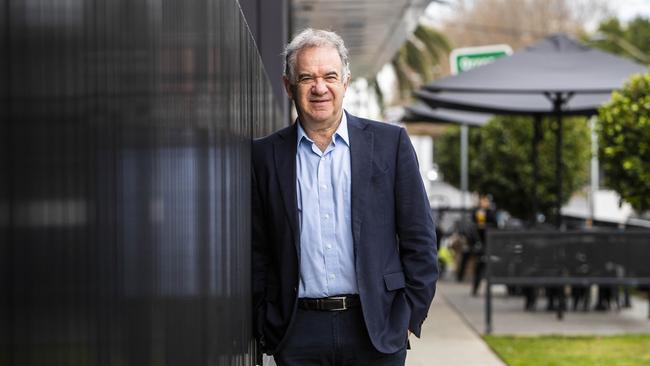Mesoblast shares surge almost 9pc as FDA approval nears on its marquee drug remestemcel-L
After a false start with the approval of a drug to treat a rare disease in children, Mesoblast is expecting to be luckier second time round.

Mesoblast shares have advanced almost 9 per cent as the company edges closer to securing long-awaited approval from the US Food and Drug Administration on one of its marquee treatments.
Chief executive Silviu Itescu said the stem cell-focused biotech has “regrouped” after a false start from the FDA last year and is on the cusp of rewarding shareholders who have ridden extreme share price volatility.
He said the FDA has indicated that Mesoblast’s refreshed approach on its drug remestemcel-L was “reasonable” and the company could gain approval as early as the first quarter of next calendar year.
The drug was developed to treat children with steroid-refractory acute graft versus host disease (aGVHD), which has a 90 per cent mortality rate and a similar immune response seen in patients with severe complications from the coronavirus.
“The market acknowledges that if we get approval, this is not one product approval. It’s a whole pipeline that’s opened up,” Dr Itescu said.
“On the one hand, it makes the bar higher for the FDA, on the other hand it creates a greater opportunity for other types of drugs because it is a platform, not a single use product.”
Mesoblast shares closed 8.9 per cent higher at 86c on Wednesday against a 0.2 per cent drop across the broader share market.
In August 2020, the US Oncologic Drugs Advisory Committee (ODAC) voted nine to one in favour of the remestemcel-L therapy – a decision that sent Mesoblast shares soaring to a six year high at $5.22.
But 12 months later, the FDA recommended that Mesoblast conduct at least one additional randomised, controlled study in adults and/or children to provide further evidence of the effectiveness of remestemcel-L for aGVHD, sending the company’s shares into a nosedive.
“Look, it’s a brand new technology,” Dr Itescu said on Wednesday.
“Even the FDA doesn’t really know what they need to certify. For example, 18 months ago we had great clinical data and the expert panel that they pulled together voted 9-1 that it should be approved. Despite that, the FDA wanted us to take a higher bar.
“To be fair, they have to do that when it’s a brand new technology that’s never been approved and released before.”
There is no therapy currently approved to treat children with aGVHD. Mesoblast’s clinical studies show remestemcel-L can slash the disease’s mortality rate from 90 to 30 per cent. “We’ve got something that changes the whole nature of this disease,” Dr Itescu said.
He was speaking as Mesoblast cut its annual loss from to $US91.3m ($132.7m) from $US98.8m the previous year. Revenue jumped 37 per cent to $US10.2m.
Mesoblast again warned investors it needs more financing to achieve its goals, with the company having about 18 months worth of cash.
“We’ve had exactly that same disclaimer every quarter for about two years and the reason we do that is from time to time we run close to the edge, as most biotechs do. You don’t want to drop the disclaimer then reintroduce it again because that’s much worse,” Dr Itescu said.
The company is expecting further cash to flow into its coffers early next year from potential remestemcel-L approval as well as from its back pain and cardiac treatments, which it is currently in talks with a “number of strategic partners”.
“If we consummate one of those transactions, there will be a substantial upfront which will allow us to extend the runway by another 15 months. So there are lots of moving parts,” Dr Itescu said.
“Our runway is a lot more solid than where it was three months ago.”
Against the ups and downs of the remestemcel-L approval process is a rout that has plagued biotech stocks, compounded by many smaller players in the industry overpromising and under delivering – or not delivering at all – after seeking to capitalise on the Covid-19 pandemic.
As a result, Dr Itescu sees a big shift emerging among biotech companies.
“In the general market where you’ve got increasing interest rates, inflation and all that kind of macro stuff, the general investors pulled out of biotech and healthcare and a lot of early stage companies – not just Covid ones.
“There were some riding on the coattails of Covid but there were others who were riding the coattails of Covid companies and they raised a lot of capital for wing and prayer early stage stuff, which has got 10 years to go before it gets validated.
“There will be a big difference between companies that have got phase three assets or even approvals, and those companies that are in early stage phase one, phase two. Those companies are going to struggle for the next 12 months, both accessing capital and getting support.”



